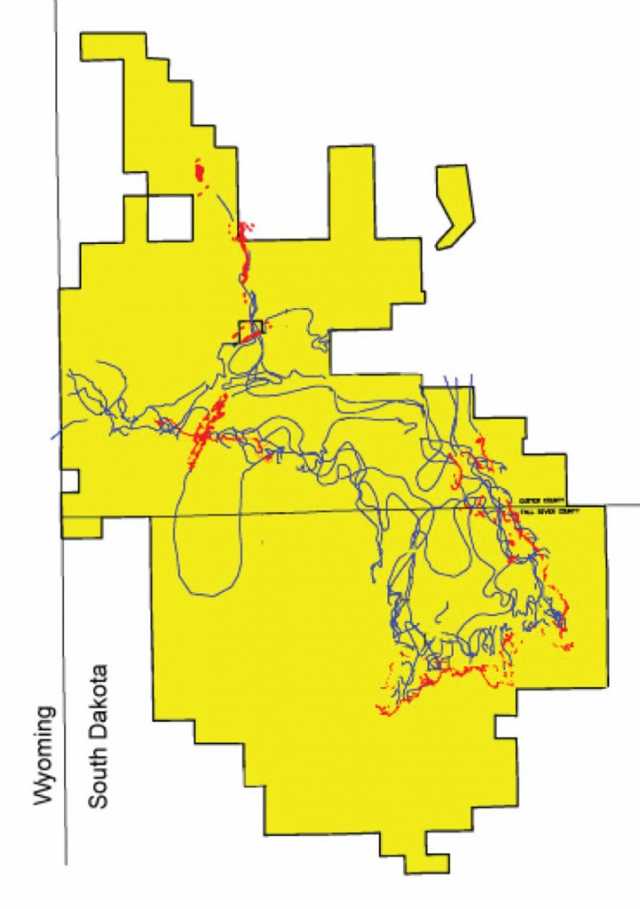![]()

A federal appeals court has denied the Oglala Sioux Tribe’s request for a review of a U.S. Nuclear Regulatory Commission decision to grant a license for the proposed Powertech, Inc, uranium mine north of Edgemont.
The tribe has worked for years to halt the Dewey-Burdock project on some 10,000 leased acres, arguing that the mine would endanger tribal cultural and environmental resources. It challenged the federal license on the grounds that tribal leaders weren’t properly consulted on the potential impact to cultural resources.
The Atomic Safety and Licensing Board agreed, but the NRC kept the license in place – ruling the tribe had failed to show it suffered “irreparable harm” from the licensing process.
The tribe did not participate in a 2013 survey for historical and cultural resources because it disapproved of the methods and timing. Multiple attempts by NRC staff to reach an agreement on a survey failed when the sides couldn’t agree on a method.
The federal appeals court ruled that the Nuclear Regulatory Commission had “satisfied its statutory obligations” during the license review process.
The decision clears the way for other permits for the project to potentially move forward. The EPA issued permits in 2020, but an appeal was paused until the court ruled on the NRC license.
Powertech. a subsidiary of Texas-based enCore Energy, is also seeking South Dakota state permits which have also been on hold while federal permits are challenged in court.
Uranium for nuclear weapons was mined in open pits and tunnels in the Edgemont area from the 1950s to the 1970s, a process that left behind unreclaimed mines, buried radioactive waste, and health concerns.
Powertech plans to use the in-situ mining method that injects a water-based solution similar to bicarbonate of soda into the aquifer, where it dissolves the uranium so it can be pumped back to the surface with the water for processing.
